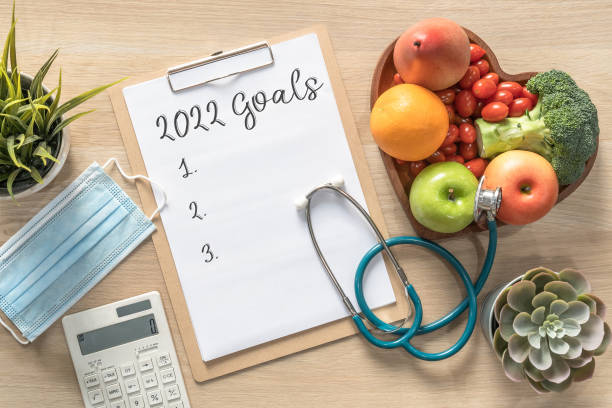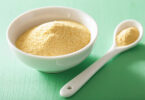What Is Your Best Strategy For Achieving Nutrition Goals?
Regardless of your goals and aspirations, it’s very likely that one of them revolves around improving your nutrition goals. Maybe you’re a dedicated athlete who is looking to reach peak physical condition. Maybe you’re a busy working mom who needs to figure out how to eat healthfully in a fast-paced world. Or maybe you’re simply looking for ways to improve your general health and reduce the risk of chronic diseases like heart disease, diabetes, or cancer. The good news is there are plenty of strategies you can use to help reach your nutrition goals. Nutrition plays an important role in every aspect of our lives—from the way we look to the risks we take, from childhood into old age. It all starts with what we eat and ends with how much activity we get each day. Unfortunately, food isn’t always convenient or readily available throughout the day; however, that doesn’t mean it’s impossible to eat well if we plan ahead and choose the right options.
Eat breakfast everyday.
The benefits of breakfast go beyond the fact that it’s the first meal of the day. When you eat breakfast, you’re forcing your body to consume calories and nutrients that it would otherwise absorb from nothing. That means a lack of energy, a drop in blood sugar levels, and a decrease in metabolism. If you skip breakfast, you’re likely missing out on the full benefits of eating a healthy meal each day. Additionally, eating breakfast daily can help you lose weight. In one study, participants ate a low-sugar, high-protein breakfast and were able to lose weight faster than those who didn’t eat breakfast. What’s more, these participants saw no decrease in the amount they ate throughout the rest of the day. That means you can confidently eat fewer calories while still maintaining or even dropping body weight.
Plan your meals and snacks.
Eating too much or too often can ruin your diet and lead to weight gain. If you find that you’re eating more or fewer calories than you planned, try tracking your intake using an app, journal, or other method. When you know how many calories are in the foods you eat, you can adjust your portions and avoid overeating. Having extra snacks on hand also means you have an option if you get hungry between meals. This prevents you from consuming excess calories, which can lead to weight gain. Additionally, planning your snacks ahead of time can help you avoid overeating at meals. For example, if you’re having a meal that’s high in sugar, you can snack on something healthier, like protein, to balance out your intake.
Read More: Top 10 Reasons Why Traveling Is Good for Your Health
Drink water when you’re thirsty.
Water is essential for life, and most people don’t consume enough of it. If you find yourself having to take multiple cups of water throughout the day, that’s a sign you’re dehydrated. Dehydration can occur if you don’t consume enough water daily or if you don’t consume water with some added electrolytes. If you find yourself easily getting thirsty, you should drink water. If you don’t feel thirsty, you probably aren’t adequately hydrated. While water can be consumed whenever you’re thirsty, there are other benefits to drinking water with some added ingredients. When you consume water with electrolytes, you’re consuming a combination of ingredients that can help you stay hydrated, increase your metabolism, and improve your workout intensity.
Limit the amount of processed food you eat.
Some foods, like white bread and white rice, are considered empty calories. Furthermore, many processed foods contain added fats, sugars, and preservatives that can contribute to weight gain. When possible, choose whole foods that are delicious and nutritious. They’re likely less expensive, too, since you didn’t have to add ingredients such as high-fructose corn syrup or trans-fats. Plus, whole foods don’t require processing, which is harmful to the environment. That means you’re eating fewer chemicals and pesticides. This can also help with your overall health, as eating less processed food means eating more vitamins and minerals, including those that contribute to good health, like calcium and magnesium.
Take a walk every day.
The benefits of walking extend beyond the fact that it’s an easy way to get your daily activity. Walking is an inexpensive activity, and it can be done at any time of day. That means you can walk during your lunch break, before bed, or when you have a few spare minutes during your day. Additionally, walking is easy to do with friends or family. That means you’re more likely to get outside and move around. Movement is important for your overall health, including your metabolism and weight. It can also prevent you from gaining weight if you don’t have time to run or swim laps.
Consume dark, leafy greens and other fruits and veggies daily.
Whether you choose to eat healthy or not, it’s important to receive enough nutrients every day. That means eating a variety of fruits and vegetables each day. Healthy vegetables, like dark leafy greens, are high in water, fiber, and vitamins. That means they can help to prevent a number of diseases, including heart disease and diabetes. You can also consume them for a cheaper form of hydration that isn’t offered by water. Similarly, fruits are high in vitamins and minerals, which can improve your health. Daily consumption of vegetables and fruits can help you stay hydrated, maintain a healthy weight, and prevent disease. However, make sure you consume them instead of water or sugary drinks.
Conclusion
If you want to improve your nutrition and maintain a healthy weight, you can start by eating breakfast everyday, limiting the amount of processed food you eat, drinking water when you’re thirsty, and taking a daily walk. If you’re looking for even more tips and strategies, take a look at our article on How to Eat Healthily.






